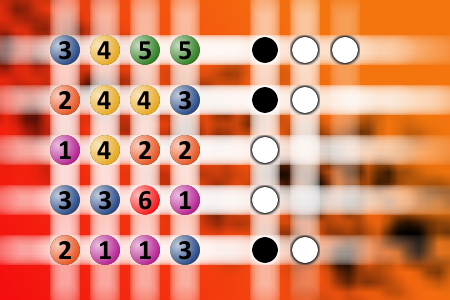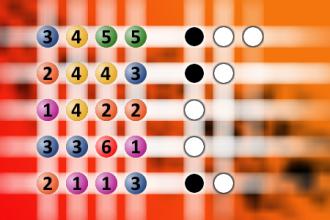Which is a winning combination of digits?
The computer chose a secret code (sequence of 4 digits from 1 to 6). Your goal is to find that code. Black circles indicate the number of hits on the right spot. White circles indicate the number of hits on the wrong spot.Correct answers: 66
The first user who solved this task is Donya Sayah30.
#brainteasers #mastermind

IRS Audit
The owner of a small New York sandwich deli was being questioned by an IRS agent about his tax return. He had reported a net profit of $80,000 for the year.
"Why don't you people leave me alone?" the deli owner said. "I work like a dog, everyone in my family helps out, the place is only closed three days a year. And you want to know how I made $80,000?"
"It's not your income that bothers us," the agent said. "It's these travel deductions. You listed six trips to Florida for you and your wife."
"Oh, that," the owner said smiling. "It is a legitimate business expense because we also deliver."
(For those of you who are not in the United States, the IRS is the Internal Revenue Service. Those are the folks to whom we pay our taxes)
"Why don't you people leave me alone?" the deli owner said. "I work like a dog, everyone in my family helps out, the place is only closed three days a year. And you want to know how I made $80,000?"
"It's not your income that bothers us," the agent said. "It's these travel deductions. You listed six trips to Florida for you and your wife."
"Oh, that," the owner said smiling. "It is a legitimate business expense because we also deliver."
(For those of you who are not in the United States, the IRS is the Internal Revenue Service. Those are the folks to whom we pay our taxes)

